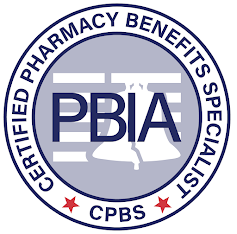News and notes from around the interweb:
- Medicaid Specialty Drug Trend Finally Surpasses 50% of Pharmacy Spend in Most Recent Magellan Rx Management Medicaid Pharmacy Trend Report. The Medicaid Pharmacy Trend Report highlights the evolving landscape of Medicaid, made even more dynamic from the events of the last two years. The report includes an in-depth analysis of class and drug trends, forecasting of Medicaid key conditions, drugs in the pipeline, and Medicaid pharmacy economics. This is also the only detailed industry source for the analysis of Medicaid pharmacy fee-for-service (FFS) gross, net, and forecasted drug cost trends.
- New Report: Anti-Competitive Practices Lead to High Prescription Drug Costs. The report, conducted by the research firm Visante, examines certain drug manufacturer anti-competitive tactics that affect many different types of prescription drugs. For example, some manufacturers of specialty drugs, which include many cancer medications, and orphan drugs employ tactics to take extra advantage of government-established monopoly status and exclusivity. In 2017, 80% of prescription drugs approved were specialty and orphan drugs, doubling from just 40% of approvals in 2001. Currently, the average launch price for drugs in these categories is more than $200,000 per patient per year.
 |
| Join the Movement! |
- 2021 Kaiser Family Foundation Employer Health Benefits Survey. The researchers found that 56 percent of small companies structured their prescription drug cost-sharing in 2021 to have at least four tiers. Meanwhile, slightly more than half of the larger companies surveyed could say the same. Nearly four out of ten large employers implemented three tiers (39 percent) compared to less than three out of ten small employers (28 percent).
- Comer: Congress Must Review PBMs’ Role in Rising Prescription Drug Prices. In his opening remarks, House Committee on Oversight and Reform Ranking Member James Comer outlined how PBMs’ consolidation has negatively affected competition in the marketplace, leading to higher drug prices for Americans. He concluded his remarks by calling on PBMs to provide greater transparency about their practices and urged further review of proposed legislation to determine any changes needed to decrease the costs of prescription drugs and benefit patients.
- As Big Pharma and Hospitals Battle Over Drug Discounts, Patients Miss Out on Millions in Benefits. Companies that want their drugs covered by Medicaid or Medicare Part B are required to offer 340B discounts, typically 25% to 50% off what they might otherwise pay. Hospitals and clinics buy the drugs at the discount and then are reimbursed by an insurance company, Medicare or Medicaid at the higher negotiated rate. The difference is kept by the hospital or clinic to use as it sees fit. The law does not require patients to benefit directly, a nuance that has fueled great conflict about how the program works and should be regulated.
The Certified Pharmacy Benefits Specialist (CPBS) educational offering includes knowledge that is critical to effective management of the pharmacy and medical drug benefit. If you want to learn more, click here.